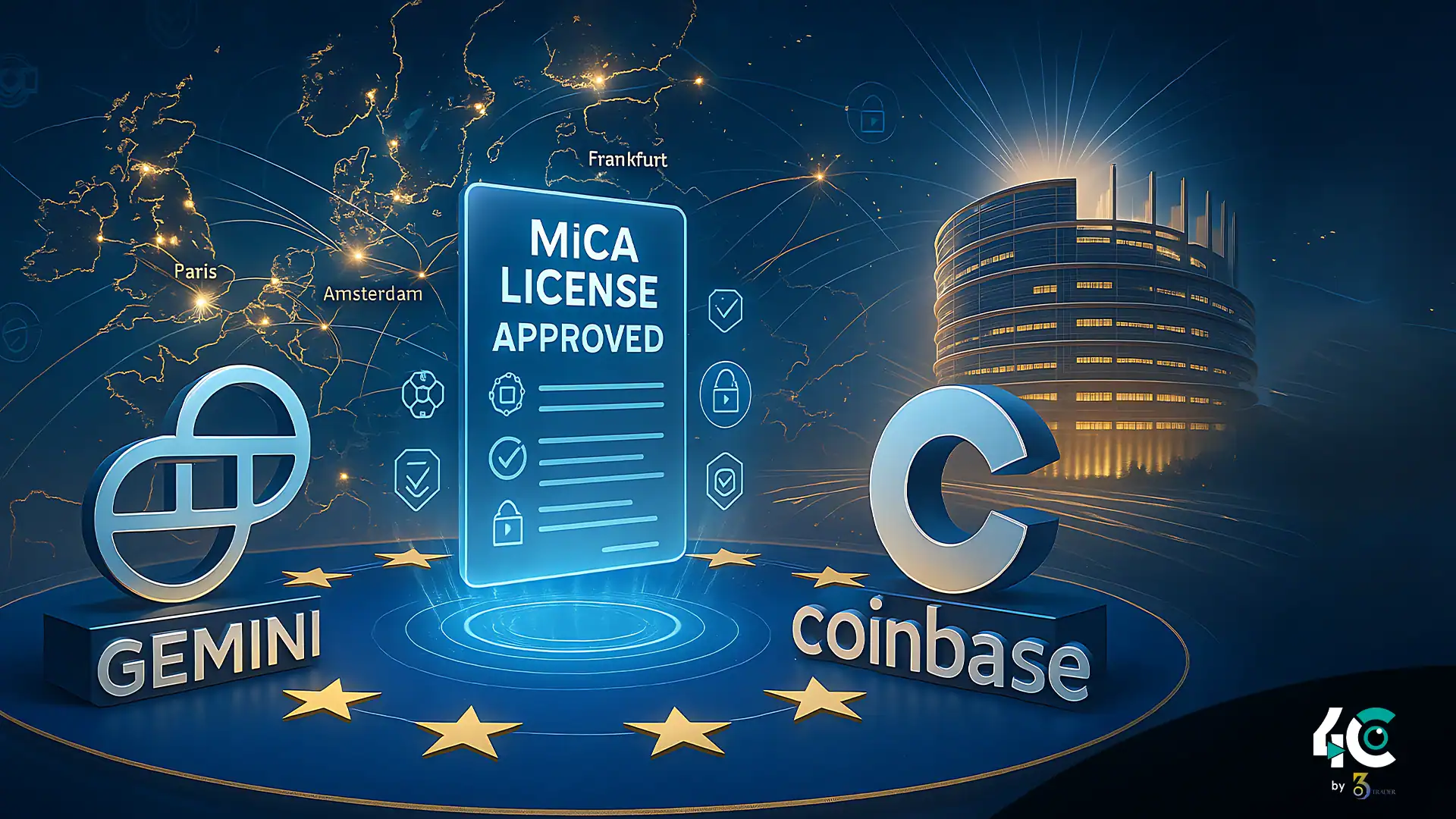The new crypto law will allow Gemini and Coinbase to obtain licenses to operate in the European Union.
Two major cryptocurrency exchanges, Gemini and Coinbase, are on the verge of getting regulatory permission to operate in the European Union under the new EU Markets in Crypto-Assets (MiCA) regulation.
Sources familiar with the matter believe Gemini will receive a license from Malta, and Coinbase will get its approval from Luxembourg. The EU’s rollout of the MiCA regulatory regime designed to create greater consistency and stronger protections for investors across all member states is underway.
A spokesperson for Coinbase declined to comment on the licensing process itself, stating that Luxembourg is a highly respected global financial center, which Coinbase finds reassuring.
Gemini and Coinbase would join other top exchanges actively expanding in the EU under MiCA with this move. For instance, Bybit secured a regulatory nod in Austria only recently, while Binance changed its procedures in Poland earlier this year in line with the new framework.
MiCA is expected to come into effect in June 2024; the regulation is likely to be fully enforced by December 2024 after the implementation guidelines are rolled out by ESMA.
New rules will provide a more harmonized regulatory environment for digital assets across Europe. They work to boost consumer protection in the crypto field, work toward greater transparency, and improve financial stability, with the goal of minimizing fragmentation across the EU member states.
Stablecoin Rules Fuel Industry Discussion
Many in the crypto community have welcomed MiCA, but there are still significant areas of concern. A key area of debate is the treatment of stablecoins.
Under MiCA, stablecoin issuers are required to keep a significant amount of their reserves in European banks. As a result, Tether (USDt issuer) omitted mention of applicable registration under this new regime.
Even if the authorities expressed concerns about the approval following discussions of illegal activities, Circle, Crypto.com, Fiat Republic, and Société Générale have managed to receive approval to issue stablecoins in the EU. However, adoption has been slower than expected. Fabio Panetta has stated that there has not been much take-up of stablecoins in Italy, one of Europe’s largest crypto markets. Panetta is the governor of the Bank of Italy and a former ECB official.
Panetta mentioned that the user interest was shifting not to stablecoins but to asset custody and crypto trading services.
What This Means for the Crypto Industry
Gemini and Coinbase will soon be approved, which will help increase the momentum for crypto operations in Europe. In light of MiCA regulations being rolled out, it is expected that more firms will join the bandwagon.
Ongoing balancing of innovation with regulation is highlighted by the regulatory developments, especially on the stablecoin side, as reports suggest that stablecoins hold a 3% market share of global asset-backed commercial paper. With Europe taking the lead on crypto regulation, the actions of major exchanges like Gemini and Coinbase could have major ramifications globally.



























